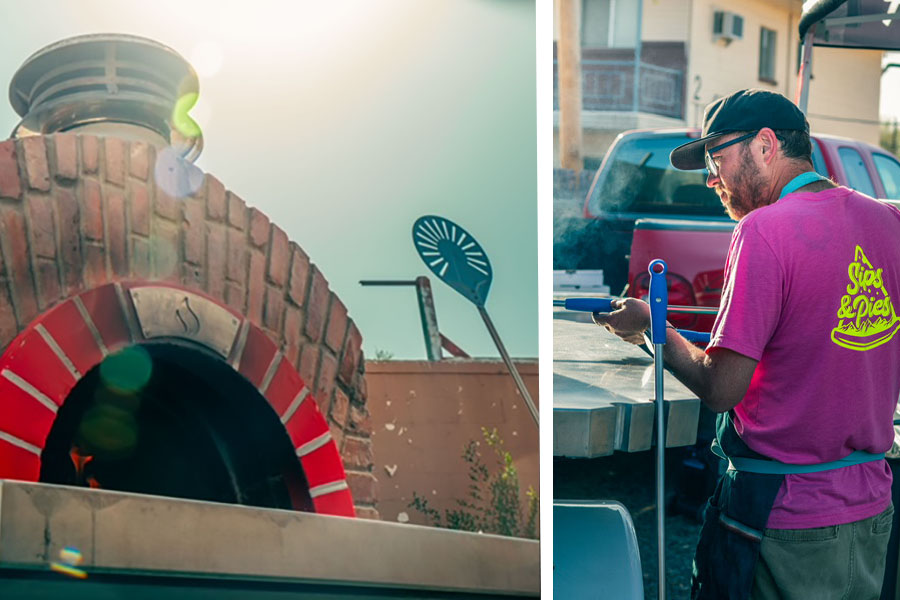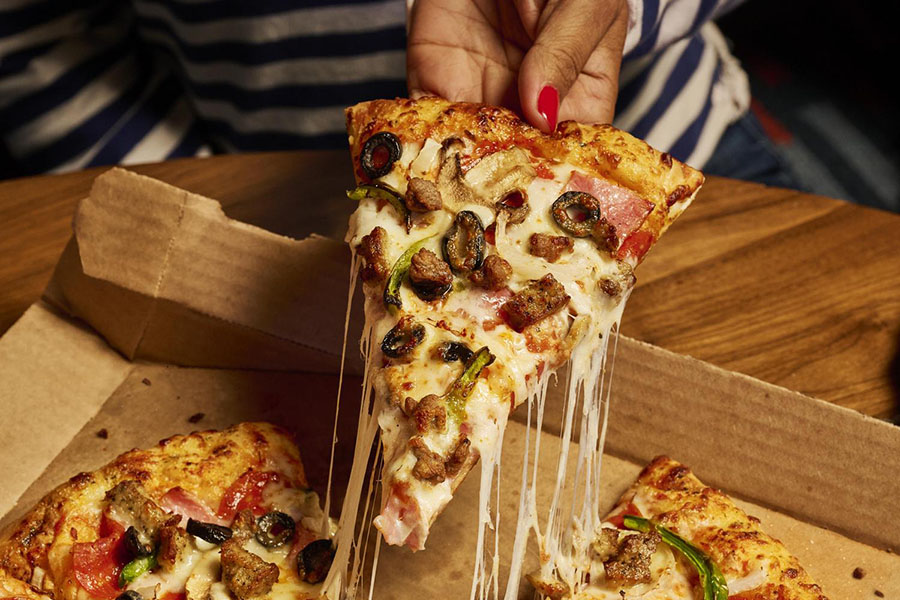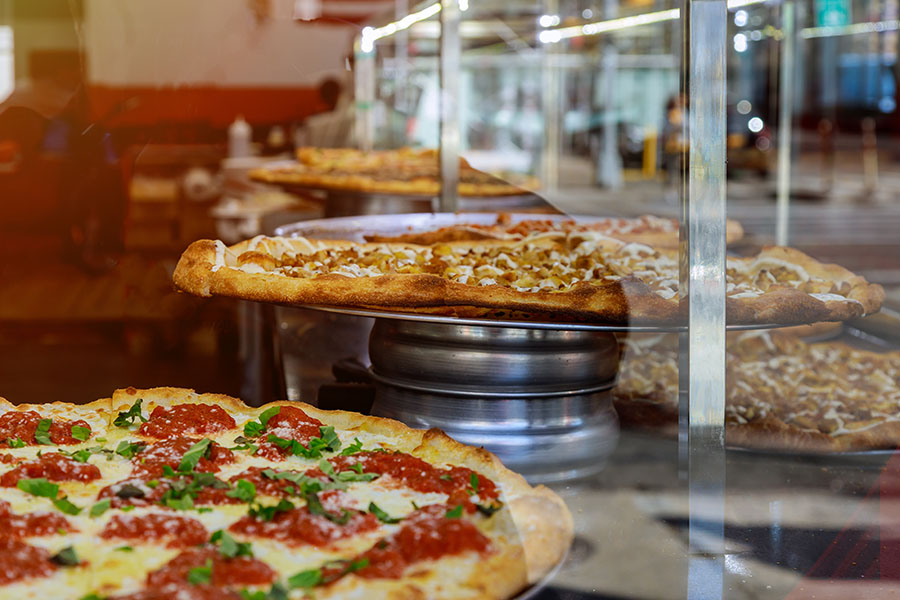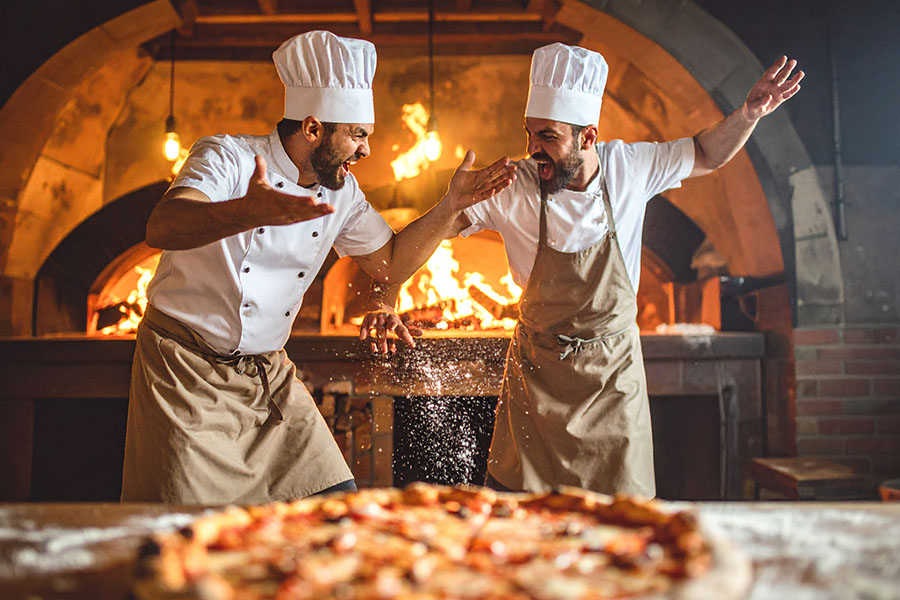Set standards and enforce them
You’re in your business all the time, surrounded by the same four walls day in and day out. Even if you own multiple locations, you’re seeing the same people over and over again, and that’s not a bad thing. They’re the people that you chose, the people that you stand behind. They’re the people you support, and it’s normal and natural to want to do right by them and protect them. That’s all well and good, but it takes a turn for the worse when you start to value their comfort over the restaurant’s health. When that occurs is when your business stops being a business and becomes an employee hangout. That’s when you’re seeking an employee family funhouse rather than a team.

Mike Bausch, owner, Andolini’s Pizzeria
A family is a blood relation, meaning no matter what happens, you can’t undo that connection. That is not, nor should it be the case for your business. An employee hangout dynamic can quickly occur when your restaurant becomes the hangout spot for staff to come and chill before and after their rush. It makes their rush that much more lackluster. The restaurant should have peaks and valleys, but with a hangout, you have people standing around openly wasting time on the clock. You also have an owner who’s more concerned with staffing liking them rather than having highly efficient staff. The goal should be efficient and focused work from your team. They should see the owner as someone who cares a lot about them and the business. Hard work manifests respect and, in turn, breeds loyalty.
To combat the employee hangout, standards must be king above all else. There must be a known standard to start, and that no one, including the owner or any manager, is above that standard. When you work this way, your work choices are made for the business’s health rather than an immediate self-benefit. I don’t work for a business of me. I work for Andolini’s Pizzeria, and we, as a team, do what needs to be done to protect Andolini’s Pizzeria’s health. When you work for the business, the business works for you. When you have standards and don’t abide by them, you discredit the ideals and disrespect and disenfranchise those who would ever seek to comply with those standards.
Here’s an example. You have a staff member who hasn’t requested off in advance and calls in to say that “They’re not feeling it today.” They want the night off. Now you know you need at least three servers on your floor, but you figure the other two can “handle it,” and they’ll probably be okay. You want to do right by this one server because they helped out a lot in the past. Now, you’ve undervalued your standard of having three people in your rush. The other two servers feel like that standard doesn’t matter now, and they have to do extra work to cover for this person. All the while, the customer gets lackluster service and is that much less likely to come back to your restaurant. All because of your shortsighted theoretical loyalty to a singular employee.
Hangout dynamic starts slow and builds to erode the fabric of a successful restaurant. The correct answer would have been, “I’m sorry. You’re not feeling great tonight. You’ve got to get a cover. That’s the standard. You got to figure it out. Anything I can do to help you, I will. But we need three people on the floor tonight.” It’s not cold or emotionless; it’s respecting the standard and with a standardized answer. As a result, people appreciate it because that’s the rule. When everyone buys off on the rules and abides by them, they feel secure. That doesn’t occur with fake rules or loose guidance. When people know the rules will have their back, they respect them. In this case, the other two servers, who now have an incomplete team, may grow demoralized. There are always exceptions that take judgment on your part to determine the call. When constant exceptions occur, they’re not exceptions at all. Instead, they become your standard, even if you didn’t choose them to be your standard.
MIKE BAUSCH is the owner of Andolini’s Pizzeria in Tulsa, Oklahoma. Instagram: @mikeybausch








